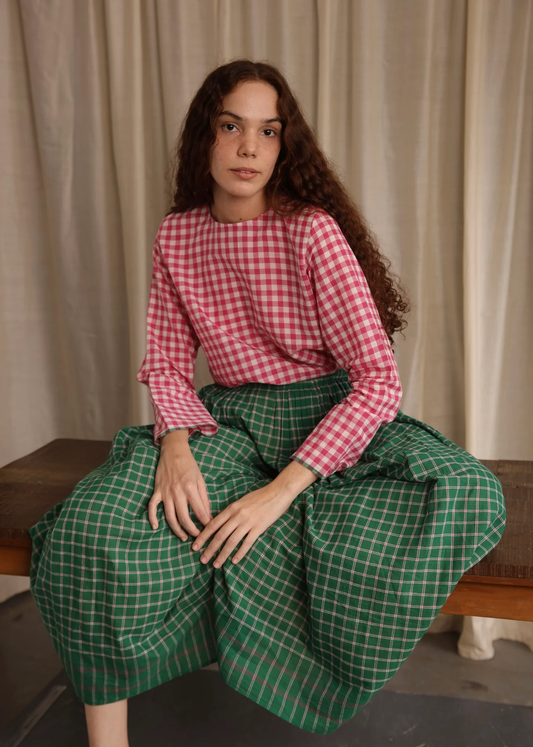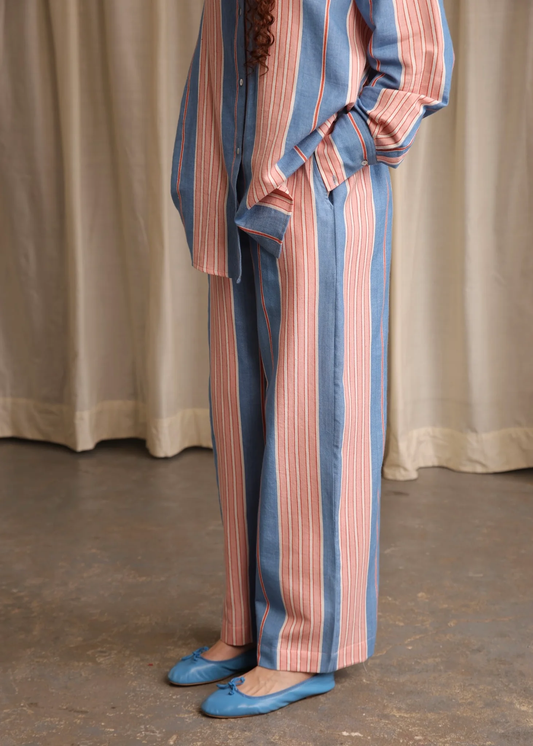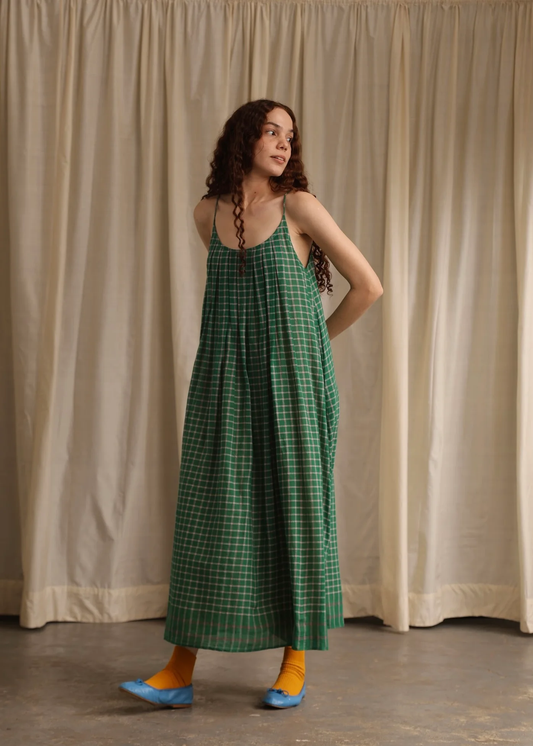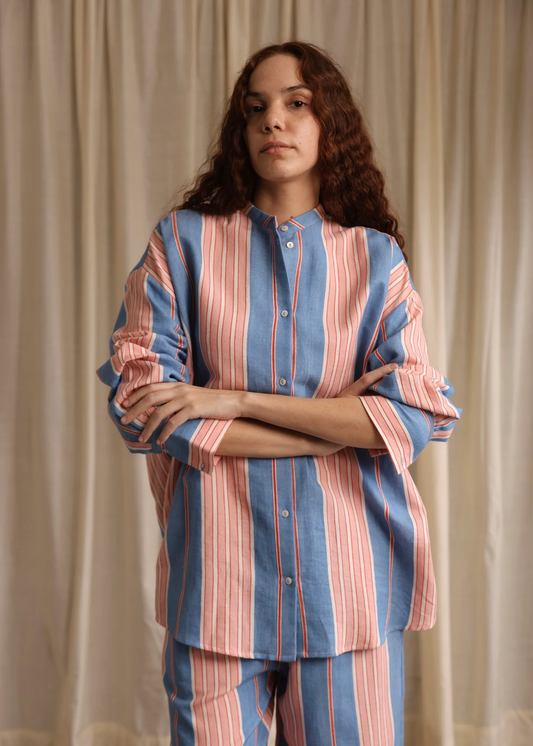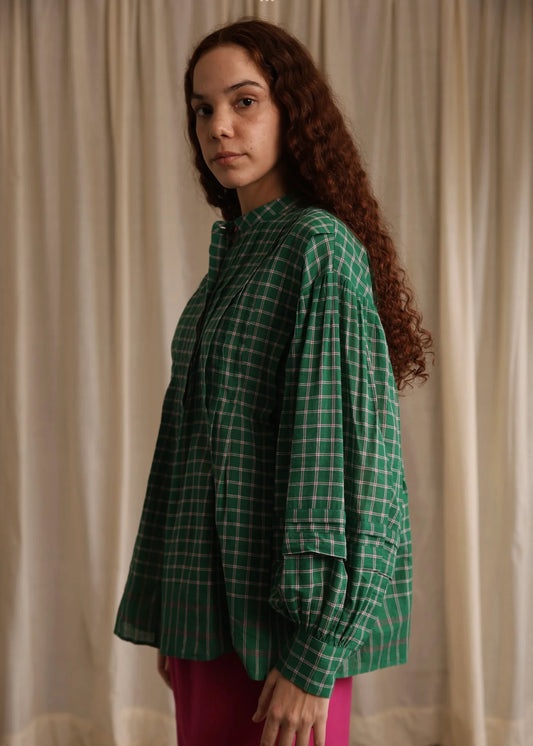
Mason & Mill
Mumbai, India
Founded in 2019, Mason & Mill was conceived in the quiet moments between busy city life and reflective afternoons. Shivani Gandhi, the visionary behind the brand, nurtured it in a modest 10x10 ft borrowed space in the heart of Mumbai’s bustling landscape. It was in this setting, amidst the fast-paced rhythm of the city, that Shivani embraced the principles of slow and conscious living. This blend of contrasting worlds gave birth to Mason & Mill’s contemporary, timeless silhouettes and simple products designed for "Fuss-Free Living."
The name ‘Mason’ signifies a ‘maker of homes,’ while ‘Mill’ represents a ‘factory of textiles and clothing.’ Together, they form a lifestyle brand that embodies sustainable practices, linking them with traditional weaving and dyeing techniques, and the crafts of India. Mason & Mill creates everyday essentials that prioritize comfort over style and timelessness over trends, all imbued with a sophisticated beauty. The collective skills of artisans, craftsmen, and weavers from across the country, combined with those of karigars working in the studio, result in meticulously crafted garments and products that quickly become everyday favorites.
Products
Every Mason & Mill product is a celebration of Indian craftsmen working with various natural raw materials and age old techniques to make products of daily use that not just appeal the eye but are also utilitarian. All products are meticulously handcrafted and consciously made in collaboration with various craft clusters and studio artists spread across the country.
Practices
All the products are ethically made in an ethical environment. All the artisans, weavers, dyers and karigars are offered fair wages. The supply chain comprises of NGOs and cooperatives that only practice fair trade. All garments are hand finished by housewives in their spare time around our locality. This empowers them to contribute towards sustaining their families and household. Production is done in small batches to avoid over production and bulk wastage of fabric. Ongoing efforts are made to consume yardages that are already lying with the weavers, in order to lower the constant demand of producing new and more, that in return helps reduce our carbon footprint.
Products from Mason & Mill
-
 Sold out
Sold outGrace | Sheer Silk Dress
Regular price $288.00 USDRegular priceUnit price / per -
Araya | Green checkered Pants
Regular price $216.00 USDRegular priceUnit price / per -
Lola | Straight Pants
Regular price $216.00 USDRegular priceUnit price / per -
Kyra | Green Checks Slip Dress
Regular price $234.00 USDRegular priceUnit price / per -
Kyle | Oversized Shirt
Regular price $206.00 USDRegular priceUnit price / per -
Val | Pleated Top
Regular price $189.00 USDRegular priceUnit price / per


